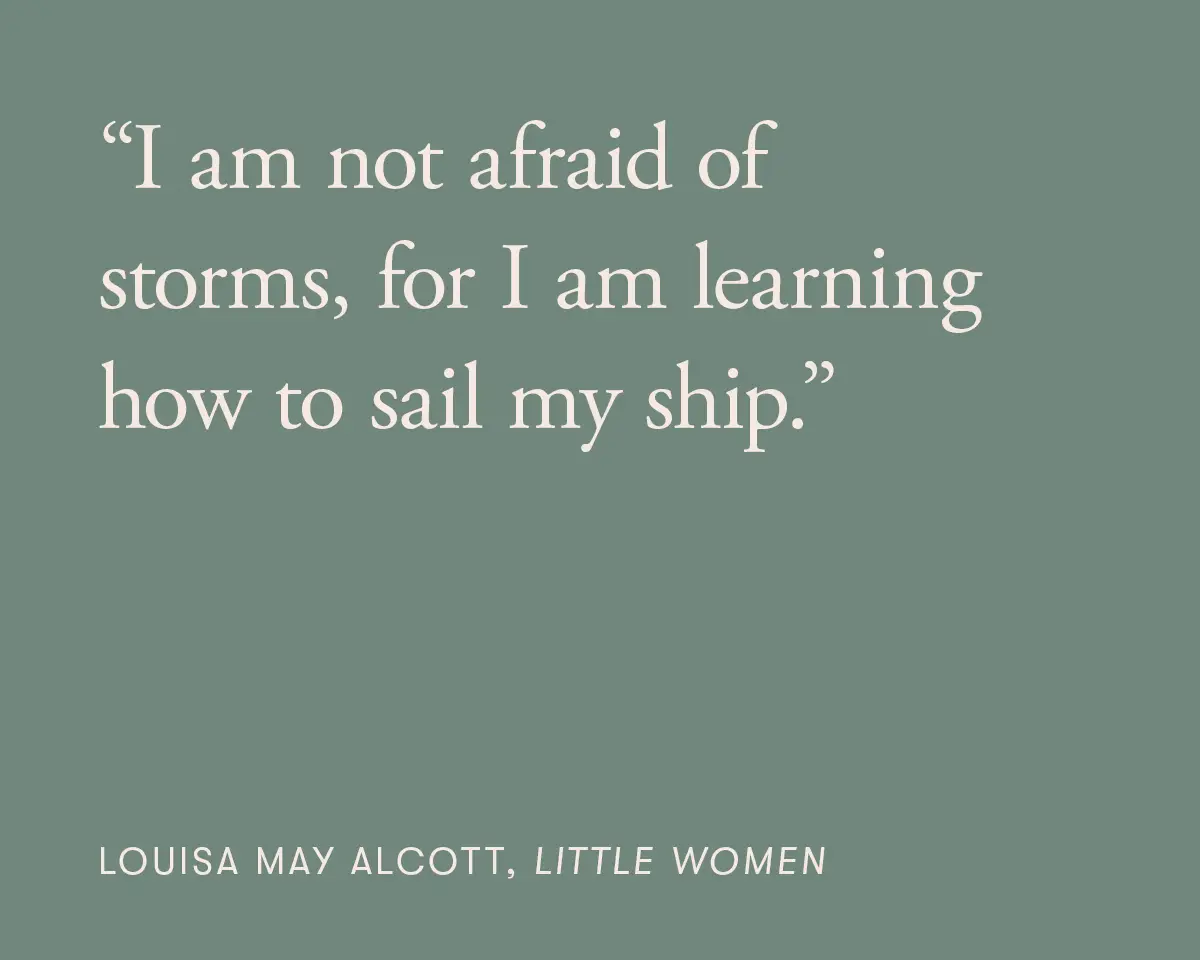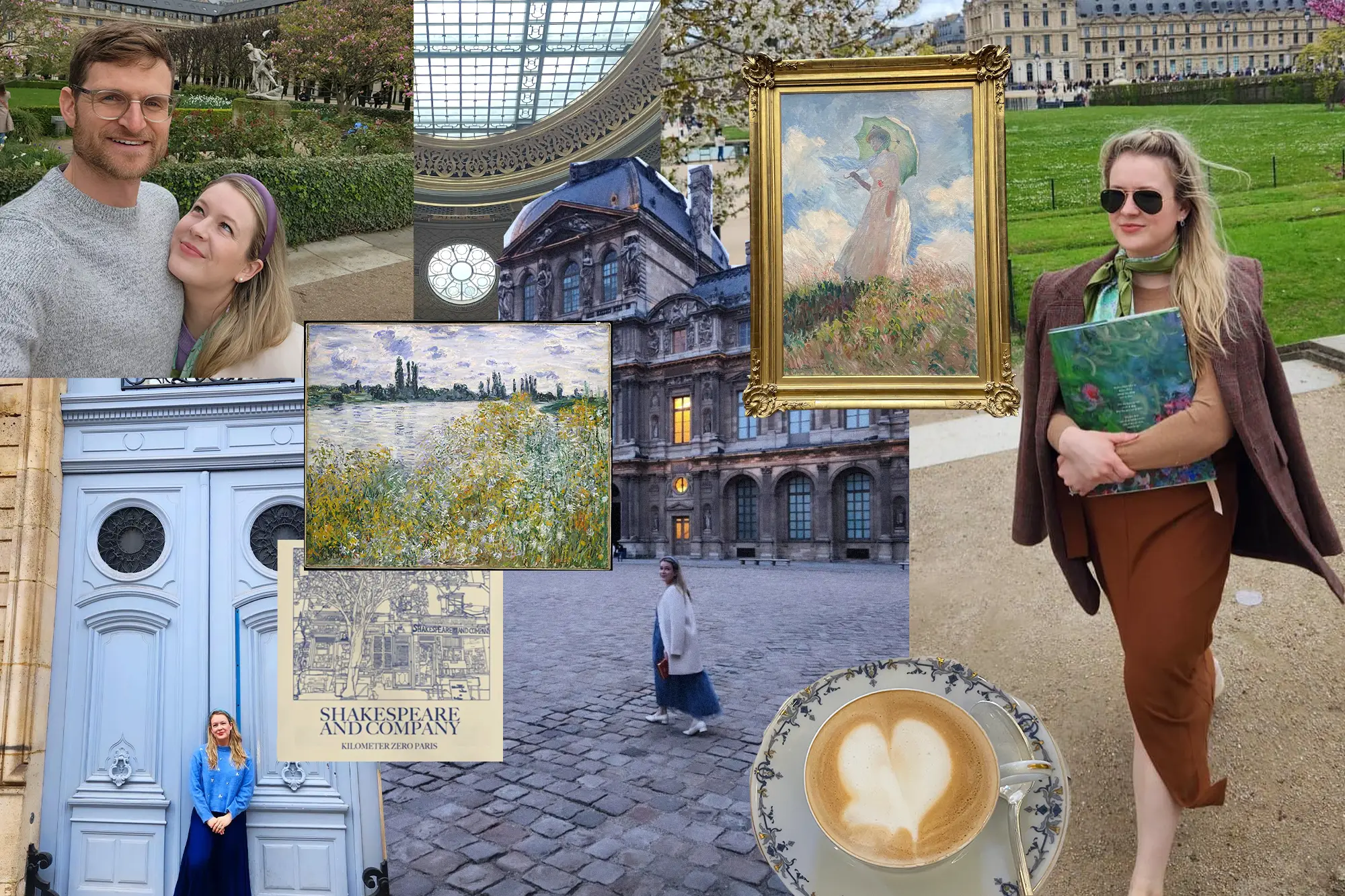I’m going to be honest: The title of this piece is misleading.
I have not found inner peace.
In fact, I don’t think inner peace is something you find—like a lost set of keys or a perfect coffee shop. It’s not a finish line we get to cross with arms raised in victory. It’s a lifelong journey, a practice. And like any meaningful journey, it comes with roadblocks and detours.

Some of those roadblocks are deeply personal: grief, heartbreak, uncertainty, or self doubt. Others are monumental, seemingly insurmountable: wars, natural disasters, political upheaval, and the deep divisions that make the world feel more fractured than ever.
So how, in the midst of all this chaos, are we supposed to wake up, find peace, and go about our days as if the world isn’t on fire? And perhaps more importantly: Should we?

How do I stay informed without spiraling? How do I engage without being consumed? And how do I reconcile the privilege of choosing when to disengage—when so many people don’t have that option?
I don’t have all the answers. But this past month, I’ve focused on what is within my control—small actions that help me feel grounded, clear-headed, and able to make a positive impact. And it’s helped. So I thought I’d share.

Here are 10 simple shifts that help me maintain a sense of peace in a chaotic world. Whenever I feel myself spiraling—doomscrolling, overanalyzing, clenching my jaw in frustration—I come back to this list.
1. Get an alarm clock.
This might sound minor, but it’s been a game-changer. I used to wake up and immediately check my phone—first for the time, then for notifications, and suddenly, before I’d even gotten out of bed, I was deep into social media or breaking news. Now, my phone stays across the room, and I wake up to the gentle (well, it doesn’t always feel gentle) beep of an actual alarm clock. It’s a small shift, but it lets me choose how I start my day, rather than letting a headline or a dread-filled tweet decide for me.

2. Start your day with a mantra.
Before I even get out of bed, I take a deep breath, stretch my arms overhead, and say out loud: Today is going to be a good day. It might sound silly, but studies show that self-affirmation can actually rewire our brains, making us more resilient to stress. And anecdotally? It works.
3. Give yourself 15 minutes to “mosey.”
My grandmother used to do this—she’d pour her coffee, shuffle around the kitchen, flip through the paper, open mail, and just exist before starting her day. I’ve adopted the same practice. Before diving into work, I give myself 15 minutes to check my personal email, read a Substack article (usually about design or stress reduction), browse a fashion site, and then—only then—read the news. This small act makes my mornings feel less rushed and more intentional.
4. Get your news from anywhere but social media.
One of the best changes I’ve made for my mental health is choosing where I get my news. Instead of consuming it through the firehose of social media—where every headline is designed to provoke outrage—I subscribe to a handful of trusted sources: BBC World News, NPR, The New York Times’ The Morning, The Daily Skimm. This shift helps me stay informed without the emotional whiplash of clickbait and hot takes.

5. Ask yourself: Can I control this?
This is my biggest work in progress. When something stressful happens, I ask:
- Can I personally control this situation?
- If not, am I still giving it my energy?
I cannot control what the President does today. I cannot control whether my cousin dates a loser. I cannot control whether my grandmother watches a propaganda-filled news channel.
But I can control how I respond.
Here’s what we can control:
- Our Bodies: What we eat, how we move, how we care for ourselves.
- Our Minds: How we react—do we meditate? Reframe our thoughts? Show ourselves kindness?
- Our Actions:
- If books are being banned, are we supporting libraries?
- If we see injustice, are we speaking up?
- If we feel isolated, are we reaching out?
And if all else fails:
“The only thing you absolutely have to know is the location of the library.” –Albert Einstein

6. Say something kind to someone—daily.
I was nervous to do this at first (complimenting random strangers), but now I love it. To see someone’s face light up in genuine surprise and know that it will stay with them for the rest of their day is a drug I’m addicted to. Loneliness is an epidemic, and I believe small gestures of kindness can shift the energy around us. Send a thoughtful text. Tell someone they’re doing a great job. It costs nothing, and it matters.
7. Do one thing each day that isn’t about you.
It could be as simple as checking in on a friend or holding the door open for someone. It’s easy to get trapped in our own anxieties, but when we step outside of ourselves—even for a moment—the world feels a little lighter.
8. Connect with a friend, family member, or neighbor each week.
We weren’t meant to live in isolation. Make the phone call. Send the text. Knock on a neighbor’s door.

9. Read before bed.
Or, if reading feels too exhausting, listen to something grounding—like a podcast (shameless plug for Lit Talk*). Scrolling social media late at night rarely brings peace; storytelling, however, often does.
10. Go to sleep at 9:45. Try it.
Okay, maybe not exactly 9:45. But getting enough sleep is a radical act of self-care. Protect your rest. My husband and I set a cue at 9:45. Our sound machine automatically notifies us that we have about 15 minutes to start winding down whatever we are doing and get ready for bed. It has been a game changer.
What I’m Still Working On:
I don’t have this all figured out. Here are the areas I want to improve:
- Spending More Time Being Creative. I want to regularly set aside time in my day to be creative. For me, that means drawing. Even if it’s 15 minutes. It helps to give my brain a break and reset.
- Meditating Daily (or almost daily). I have found that for me, meditation in the morning feels like too much. Instead, I try after lunch or before bed. Removing the pressure of doing it first thing in the morning has helped.
- Using my Walking Pad More Often. My doctor recently told me that 150 minutes of walking a week can decrease the risk of dementia by a crazy percentage. That was the kick in the butt I needed to walk walk walk!
Remember that peace isn’t a place we arrive at. It’s something we build, slowly, with intention. And maybe that’s the whole point.
Another chapter awaits,
Jacqueline




















